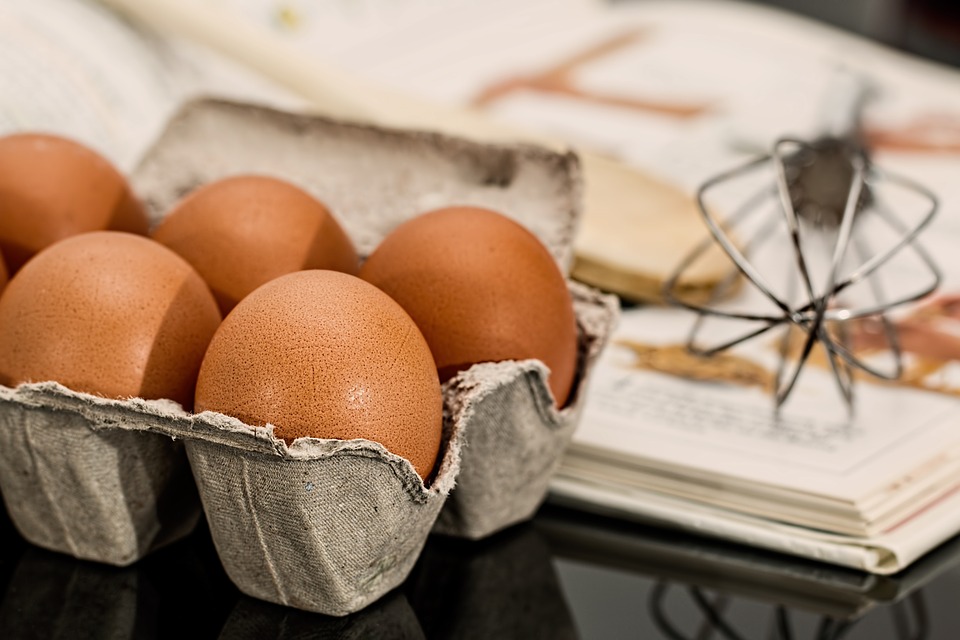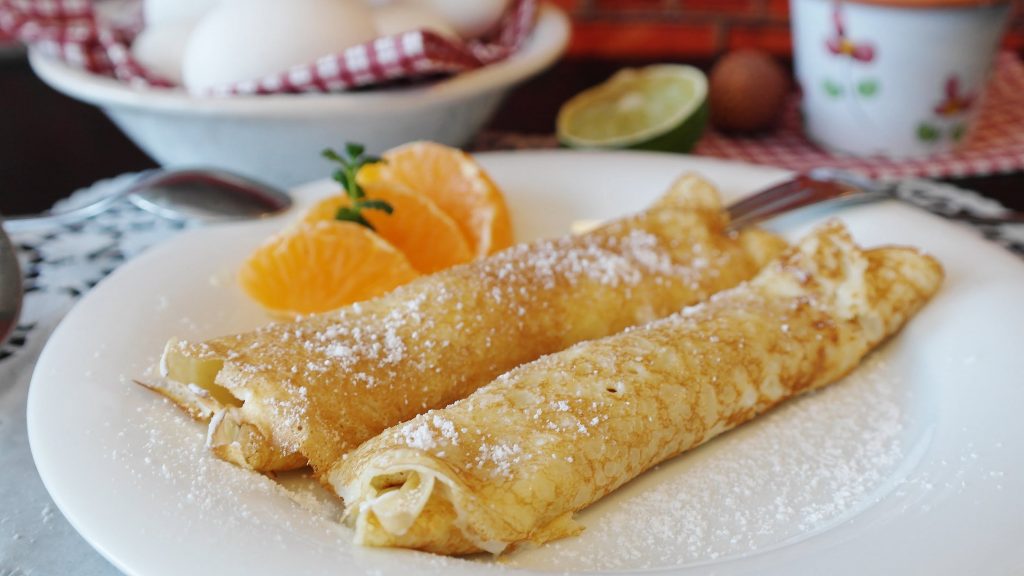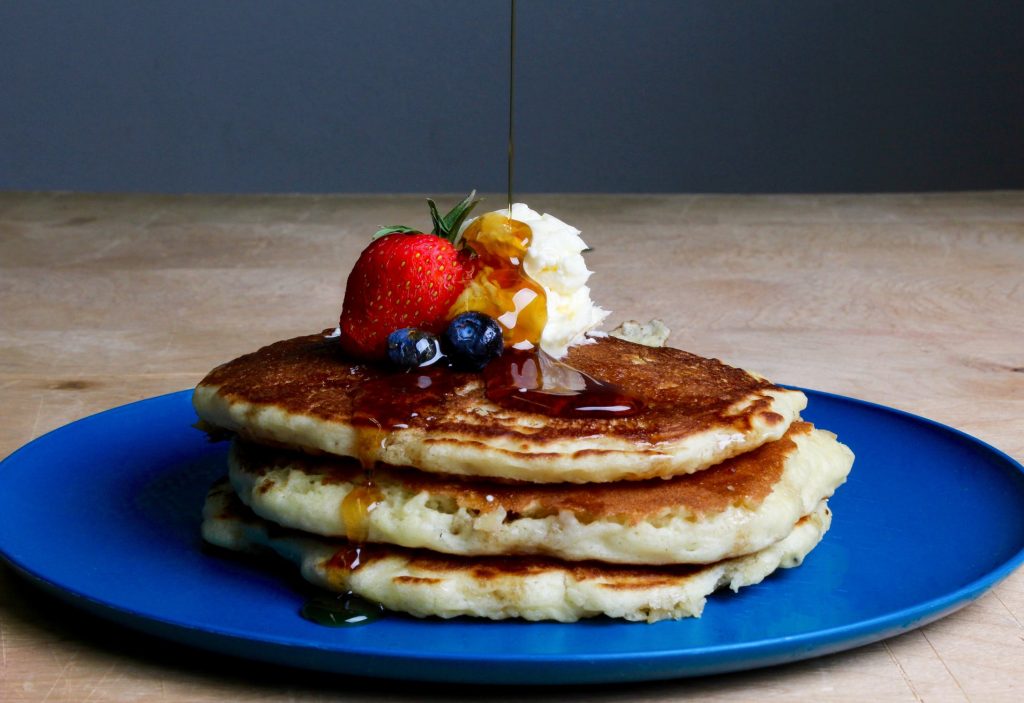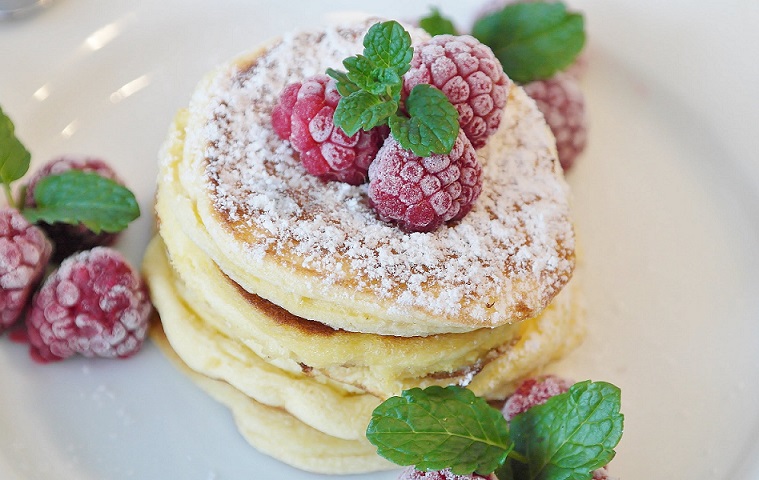Pancake Day is just around the corner, which means everyone in the UK will be preparing to make delicious crispy pancakes! The proper name for Pancake Day is of course Shrove Tuesday. This is the day when people traditionally used up all their luxury foods – milk, sugar and eggs – to make pancakes before they began fasting for Lent.
In 2025, Shrove Tuesday falls on Tuesday 4th March. Read on to find out all about this mini celebration day and its religious origins. We’ve included an easy pancake recipe, plus we have some great ideas for Pancake Day EFL lessons!
What is Shrove Tuesday?
Shrove Tuesday is the day before Ash Wednesday, a religious holiday that marks the start of 40 days of Lent.
Lent is traditionally a period of austerity and repentance that pays tribute to the period of fasting and prayer that Jesus undertook while in the desert for 40 days and 40 nights. Traditionally, people fasted and ate only the simplest of foods during this time.
The idea of Lent was to prepare the people for Easter through 40 days of repentance, prayer and self-denial. In fact, the word ‘shrove’ (from Shrove Tuesday) is derived from the Old English word ‘shrive’, which means ‘to confess’. The act of ‘shriving’ is the act of confessing one’s sins.
Nowadays, people rarely undertake a full fast during Lent but many people do give up a luxury item or a fun activity during this time, such as eating chocolate, drinking alcohol or coffee, using social media, watching television or another unnecessary treat.
The reason people eat pancakes on Shrove Tuesday is that the ingredients in this food use up all the extravagant items, such as eggs, milk and sugar, which would not be eaten during Lent.
Instead of wasting these foods and throwing them away ready for their fast, people would make them into pancakes and eat them on Shrove Tuesday.
When is Lent this Year?
Lent begins on Ash Wednesday and ends on Maundy Thursday, which is the Thursday before Easter Sunday. This means that this year, Lent begins on 5th March 2025 and ends on 19th April 2025.
What are Pancakes?
Pancakes are wide, flat ‘cakes’ made from eggs, milk and flour. To make a pancake, you first have to make a batter using these three ingredients. You then fry the batter in a frying pan with a little oil. Make sure you keep turning the pancake over as it cooks so that it cooks on both sides.
A pancake cooks very quickly and you will know when it is ready because it goes crispy and turns brown around the edges.
Easy Pancake Recipe
Here is a simple recipe for making 10 pancakes:
- Pour 100g of plain flour, 2 large eggs and 300ml of milk into a bowl. Whisk up the mixture to create a smooth batter.

2. Heat a frying pan over a medium heat and pour in a teaspoon of vegetable oil. When the oil is hot, pour in some of the batter to cover the bottom of the pan. Cook the pancake for 1 minute on both sides until it is golden. Flip if you dare!
3. Repeat the process to make your other pancakes, keeping the finished pancakes warm in the oven on a low heat. Remember to keep adding more oil as needed, so your pancakes don’t stick to the pan.
4. Lie the pancakes flat or roll them up on a plate. Top the pancakes with lemon juice and sugar (if you want to be traditional) – or other toppings of your choice!

Pancakes are not the healthiest of foods with their rich sugar and fat content. However, it is possible to make healthier pancakes with a few tweaks to the traditional recipe!
Check out these healthy pancake recipes for some ideas on how to make pancakes with extra health-boosting properties.
What Happens on Pancake Day?
These days, Shrove Tuesday is often called Pancake Day due to the focus on the tasty food of pancakes – Pancake Day is a favourite holiday with children. On this mini celebration day, the pancake takes centre stage and people get quite flamboyant with their cooking and preparation routines!
Many cooks ‘toss’ or ‘flip’ their pancakes while they cook them in the frying pan. This means jerking the pan to fling the pancake up into the air to flip it over and then catching it again on its way down.
This fancy routine works to turn the pancake over so that it cooks on both sides. You can try this – just be careful you don’t get your pancake stuck to the ceiling!
Once the pancake is ready to serve it is golden brown on the top and bottom. People top their pancakes with tasty toppings, traditionally lemon juice and sugar.
These days people also use many more adventurous toppings, such as orange juice, maple syrup, treacle, fruit, yoghurt, honey, ice cream, jam, chocolate sauce and other scrumptious toppings.
Some people even make savoury pancakes with toppings such as bacon and eggs or ham and cheese.
Pancake Day Events
There are various events that take place on Shrove Tuesday, which are popular with children. For example, pancake races are a traditional favourite, where people run a race while holding a frying pan with a pancake, trying to toss it as they run!
Pancake Day is certainly well celebrated in the UK on the day before Ash Wednesday. However in America, people often celebrate Mardi Gras on this day instead.
The words ‘Mardi Gras’ actually mean ‘Fat Tuesday’ in French, which reflects the practice of eating up the high fat foods in preparation for the fasting of Lent.
For an interesting Pancake Day EFL activity, try the gap fill exercise below. Students can fill in the gaps using the vocabulary presented in the first half of the lesson, which can be discussed verbally and presented in written form as an article for students to read.
EFL Gap Fill Exercise for Pancake Day
Pancake Day is another name for ______________. It is on this day that people make pancakes and top them with delicious toppings, such as ______________ or ______________. People can also make ______________ pancakes, topped with food such as bacon and eggs.
The proper name for Pancake Day is ______________. This is the day before ______________, which is a religious holiday that marks the start of ______________.
Lent lasts for 40 days and during this time, people used to ______________ and eat only the simplest foods. In order to use up other foods, people made pancakes using ______________, ______________ and ______________. These days people rarely fast, but they do often give up a luxury, such as ______________ or ______________.
Pancake Day has become a small celebration day in the UK, enjoyed especially by ______________. There are special events held for children, such as ______________, where the competitors run with a pancake in a frying pan!
Traditionally, people topped their pancakes with ______________ and ______________. Today, people put all kinds of toppings on their pancakes, such as ______________ or ______________. Preparation is also a fun activity and some people _____________ their pancakes while they are in the frying pan to turn them over. If you do this, you have to be careful they don’t get _____________ to the ceiling!

EFL Activities for Pancake Day
Pancake Day offers some fun ideas for an EFL class, whether you are looking to teach or practice writing, reading, speaking or listening skills.
Students can learn vocabulary related to Shrove Tuesday in the first half of the lesson as the teacher presents the vocabulary. It is then beneficial to have a class discussion about what people do on Pancake Day and the ingredients used to make pancakes and the toppings normally used.
If you have access to cooking facilities or could bring in a portable hob, it might be fun to make your own pancakes in class!
Students could also find more collocations for the vocabulary associated with Shrove Tuesday / Pancake Day.
This could also introduce the religious side of the celebration with an exploration of Lent and the reasons behind this period of simple living and fasting. Students could think about what luxury they could give up for Lent.
Other activities include writing a letter to a friend about what they did on Pancake Day, such as making pancakes, choosing toppings, tossing and flipping the pancakes, running in a pancake race, and whether they are giving up a treat item for Lent.
Students could also create a poster advertising a Pancake Day event, such as a celebratory lunch and a race for children.
There are many activities ideally suited to a Shrove Tuesday EFL lesson. These include: gap-fill exercises for reading and comprehension practice, group discussions about Lent and giving up luxury items, and writing about Pancake Day activities using letters, articles and posters.
Share your thoughts on Pancake Day
Will you be celebrating Pancake Day? What toppings will you use on your pancakes?
Are you going to give up a luxury item or activity for Lent? If so, what will you give up?
Are there any words or phrases related to Shrove Tuesday that you don’t understand or find confusing?
International students, do you celebrate Shrove Tuesday in your home country? Do you make pancakes or mark the occasion in a different way?
Let us know your Pancake Day traditions in the comments!

